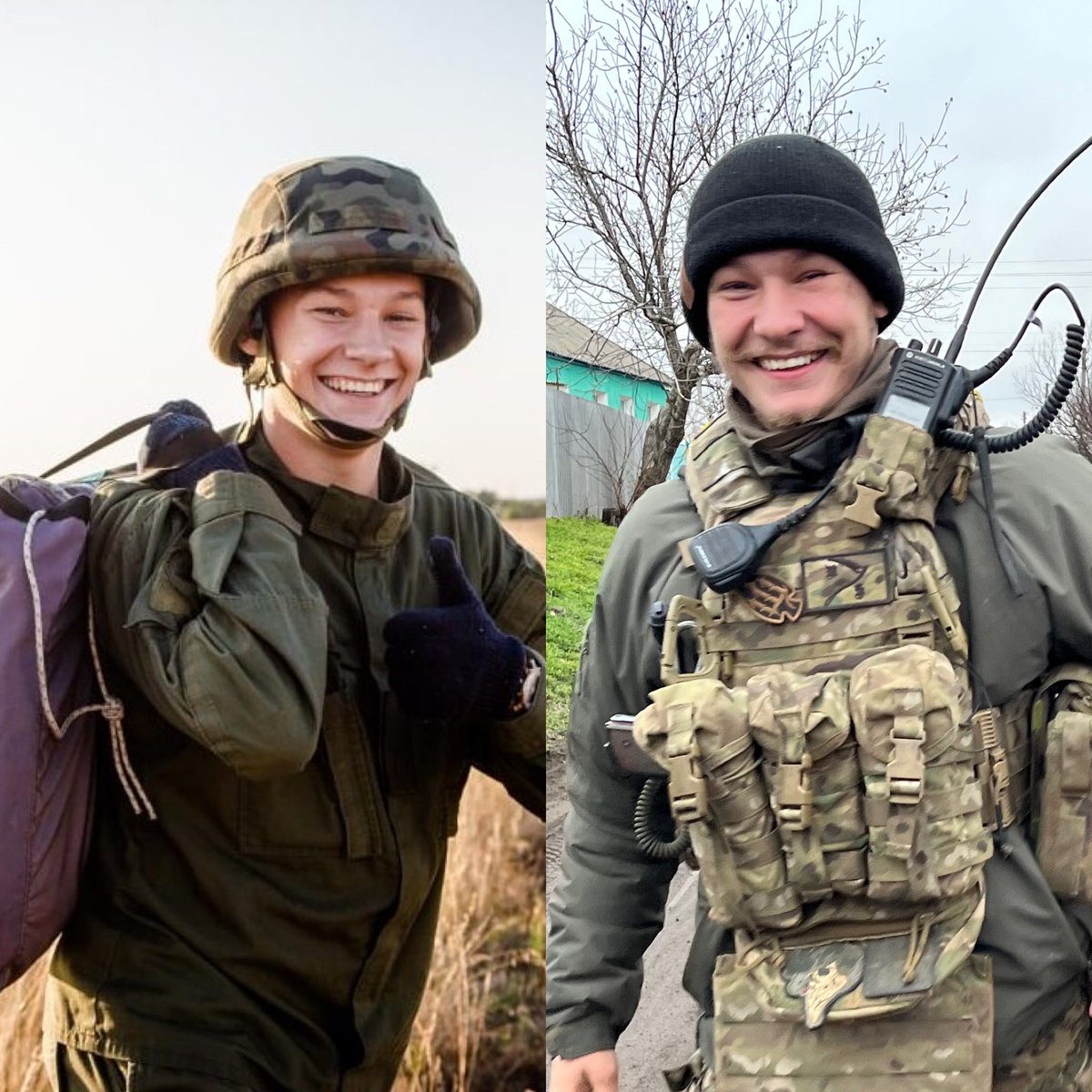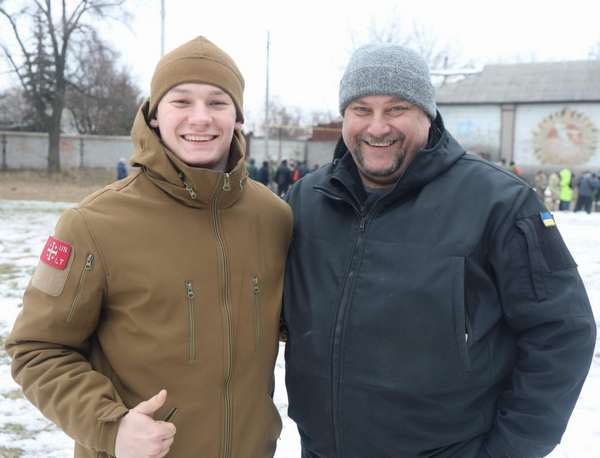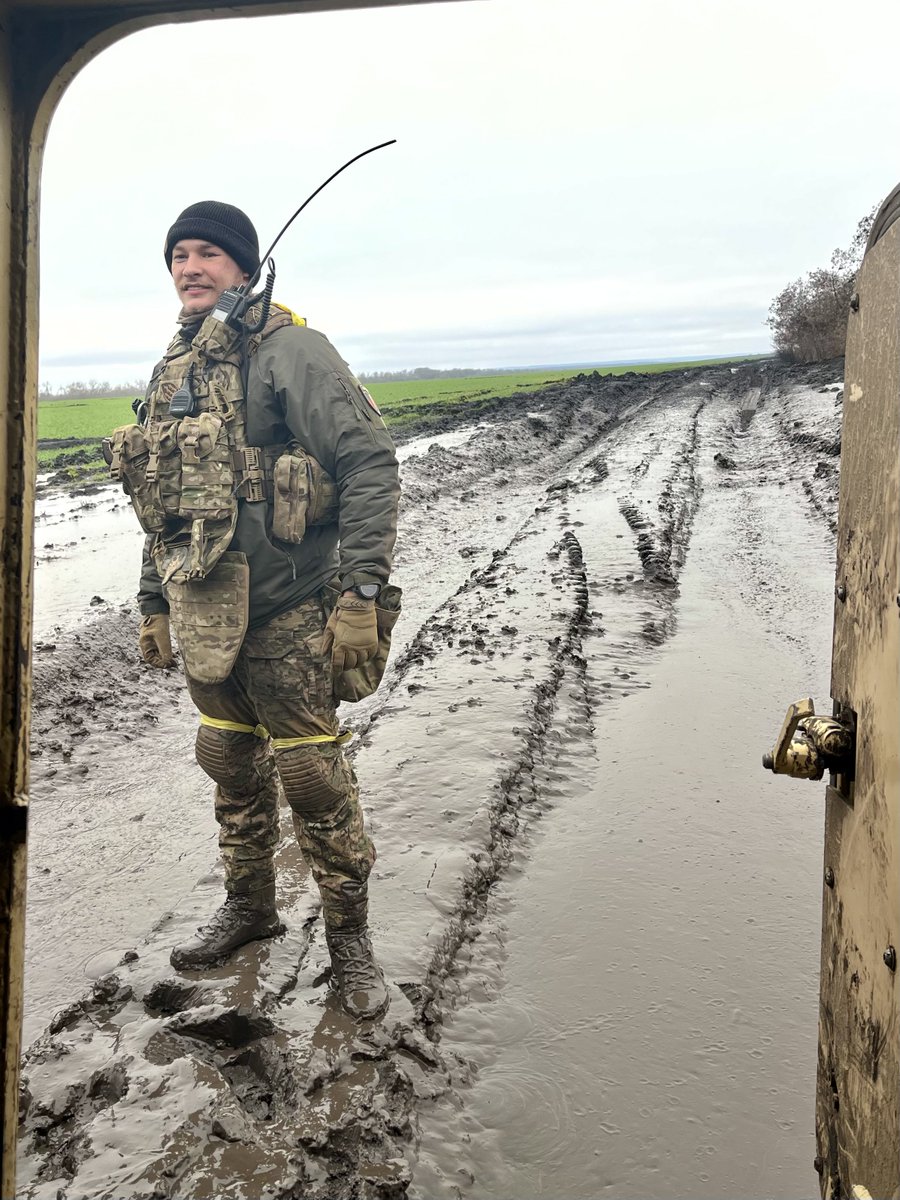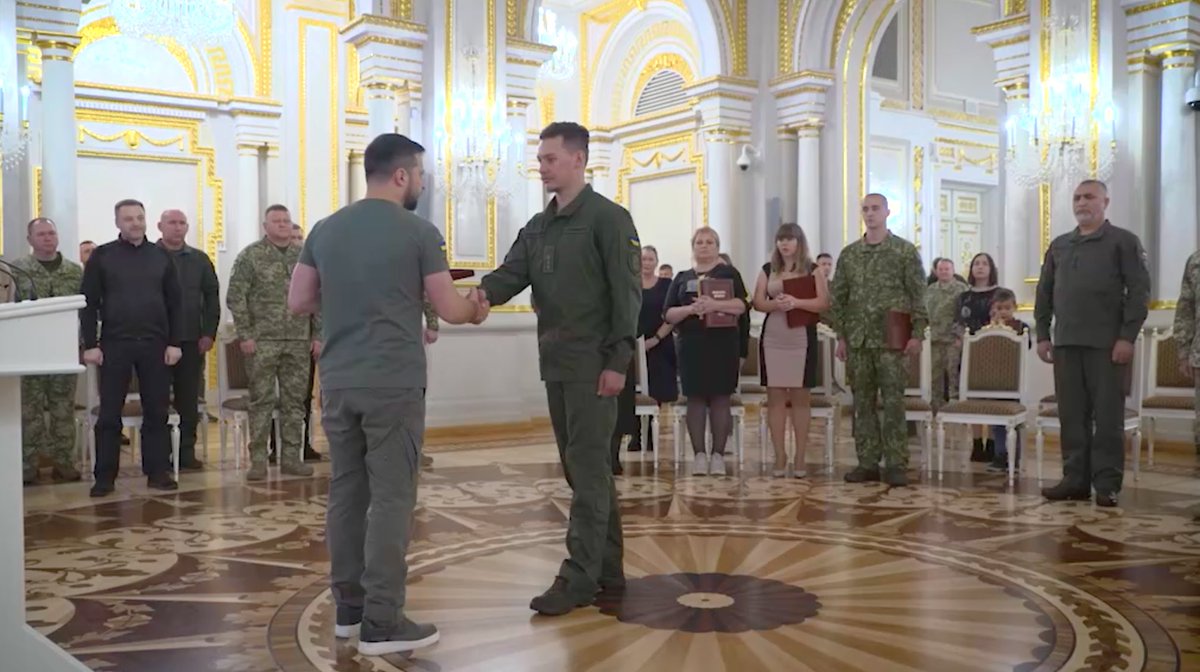
2022 has been a lesson in never judging a book, nor a country, by its cover. At the end of February, while the city of Kharkiv was still under attack, I met 21 yo, Eugene Gromadskyi. At the time I had no idea what he, nor Ukraine, were capable of. bbc.co.uk/news/world-eur… 

A hurried mobilisation was underway. The city and the country felt underprepared for the scale of what had hit them. These were the most troops I’d seen in the week there. From the crowd, a young National Guards lieutenant emerged and said, in English, “call me Eugene”
Look at his feet. It’s the middle of winter, he’d been fighting back Russian attacks, and he was wearing trainers. He was confident and determined, but I couldn’t help but think, this isn’t how you defeat the Russian army. 

On the day of Russia’s invasion, he fought solidly for 48 hours, his unit outnumbered and out-gunned. But they stopped a number of armoured columns, killing attackers. They even captured some enemy forces as well as ammunition and vehicles. Eugene had help from his dad Oleg. 

Oleg, a retired army Colonel had gone straight to the barricades the morning of the attack, telling friends of Facebook to arm themselves and to prepare to defend their country. Courage runs in Gromadskyi veins. Seven generations of the family have served. 

Those first hours were brutal. Father and son fought shoulder to shoulder, one on machine gun, the other at a grenade launcher. Under heavy Russian fire, they had to withdraw. At ten o’clock that evening Eugene would learn that his dad had been killed in an artillery strike. 

Pause for a moment and think about that. Your country is under attack, your life is a risk, and you’ve just lost your dad. But Eugene didn’t have time for grief. He got together 20 men and returned to battle. 

And he kept on fighting, still smiling, still in the thick of it. When we could we’d meet in Kharkiv. He is an eternal optimist. But by summer he was growing frustrated by the stalled conditions. He wanted his country on the offensive. 

And then, silence. He disappeared.
The casualties in this war are enormous. On both sides. Days after meeting a unit, I’ll get a message saying, “do you remember..”, informing me that someone we just met has been killed. Or badly injured.
"We came under fire and a shell exploded near me and shrapnel hit my face, near my lip and apparently came out at my temple. [In hospital] an operation was performed, I was put back together, they didn't need to use metal plates." 

Again, he did not rest. After ten days in hospital he was back with a new unit, now in the Ukrainian Army, not the National Guard. He went back to fight WITH A BROKEN JAW. 

He’s been fighting ever since, as Ukraine gained momentum over the summer he was at the forefront of the offensive in Kharkiv region, driving the Russians out. Winter conditions are appalling. But at least he has boots now. (And HIMARS, heavy artillery, armoured vehicles...) 

And on Sept 24th his bravery in Kharkiv and Ukraine’s initial desperate hours was rewarded. President Zelensky presented him with the order of the gold star, Hero of Ukraine award. “I was so nervous, I couldn’t remember my own name”, Eugene told me. 



His dad of course, couldn’t be there, and neither could his mother, Natalia. But we’ll have more on her tonight when our report airs on #bbcnewsten
As 2022 ends, remember what’s been won, and lost. Eugene and his mum, along with millions of Ukrainians are suffering Russian aggression on the battlefield and the home front. Its remarkable what can be achieved with courage, determination and a good pair of trainers
For those asking, you can find Eugene here instagram.com/p/CjnpDjvN4yU/…
For those outside the UK you can watch a long version of our TV piece here. With @dcinfocus
• • •
Missing some Tweet in this thread? You can try to
force a refresh








